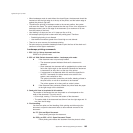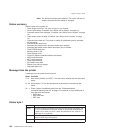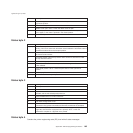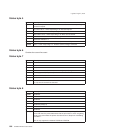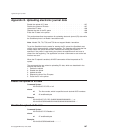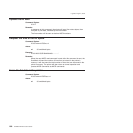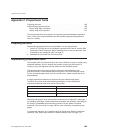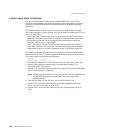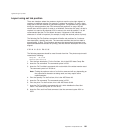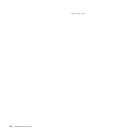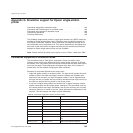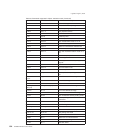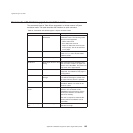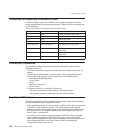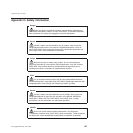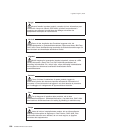Layout using set tab position
There are situations where the customer might not want the price right aligned, or
requires an additional column (for example, a column for quantity). In such a case,
using tabs is the best method to guarantee alignment. Tab positions that you define
during the setup operation (see “Set horizontal tab positions” on page 138) will
remain intact until the printer is reset or re-initialized. Once tabs are setup, all that is
required is to send a tab character X'09' to move to the next tab position. It is still
recommended that the Fix Font Matrix be used, if alignment of the individual
characters in a field is important (for example, to align the decimal points of prices).
The following Set Tab Positions command will define tab positions for 3 columns:
item description, quantity and price. The command assumes that the font width is
approximately 10 dots. This procedure assumes that proportional characters have
been downloaded and selected for printing, and that the item description will be left
aligned.
X'1B 44 01 90 01 D6 00 00'
The following sequence should be used for each item line. The printer output would
resemble the following:
Candy Bar 03 $ 1.00
Fountain Soda 10 $11.10
1. Print the item description. For the first item, this is the ASCII data Candy Bar.
2. Issue the Tab command. The command syntax is X'09'.
3. Issue the Fix Font Matrix command with n=dot width of the widest number used.
The command syntax is X'1B 3A xx'.
Note: Finding the optimum value of xx for this command will vary depending on
the proportional character set being used, and may require some
experimentation.
4. Print the quantity. For the first item, this is the ASCII data 03.
5. Issue the Tab command. The command syntax is X'09'.
6. Print the price. For the first item, this is the ASCII data $1.00.
7. Issue the Fix Font Matrix command with n=0, which disables the fixed font
matrix. The command syntax is X'1B 3A 00'.
8. Issue the Print and Line Feed command. Use the command syntax X'0A' or
X'0D'.
Updated April 2, 2009
Appendix F. Proportional fonts 191



